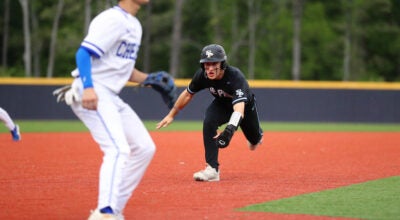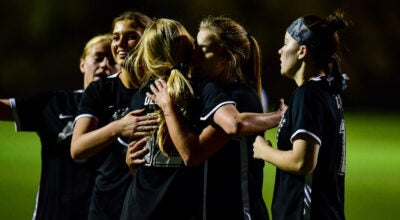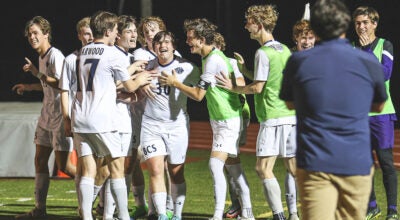Shelby County students practice language at ESL camp
Published 11:09 am Thursday, June 25, 2015

Students work with HIS teacher Julie Johnston to create polar bears out of paper plates, just one of the fun activities at IES ESL camp. (Reporter Photo / Molly Davidson)
By MOLLY DAVIDSON / Staff Writer
NORTH SHELBY—Imagine reading textbooks, studying and learning in a foreign language. This is a challenge hundreds of Shelby County’s English as a second language students face every day in school.
For the past two weeks, Shelby County Schools students have been practicing and strengthening their English skills at ESL summer camps offered at various schools across the county from June 15-26.
“We have 80 students attending the camp,” Inverness Elementary School ESL teacher and IES camp director Kiffany Rueda said.
Each day at IES, kindergarten through ninth grade students spend three hours working closely with teachers to enhance their English through fun, hands-on activities.
“Our point for the camp is they get English practice during the summer in a fun and interactive way,” Rueda said. “It helps prevent that loss over the summer.”
The theme of camp is “Animal Kingdom.” Students are studying various aspects of wildlife across the world. They research, collaborate and interacte in English, strengthening both their interpersonal and academic language abilities, Rueda explained.
Interpersonal language is English spoken in “everyday conversation,” Rueda said. These language skills can take between one and three years to develop.
Academic language, on the other hand, is that used “to study, read and learn in another language,” Rueda explained. While a student may have strong interpersonal language skills, academic language can take up to seven years to develop, Rueda said.
“There’s a lot more language involved (in academic English)… that just takes time,” Rueda said. “You can’t hurry learning another language.”
Students work closely with teachers throughout the intensive two-week camp, allowing teachers to “catch the gap” between interpersonal and academic language abilities, ensuring students don’t fall behind, Reuda said.
In addition to strengthening language skills, the two-week ESL camp helps prepare students for the coming school year by following the standards students will be taught in school.
“Today we practiced writing… they’re keeping a plant journal,” Helena Intermediate School teacher Julie Johnston said of her camp class of rising first grade students. “We’re teaching them first grade standards, so when they’re introduced to them, they already have that background experience.”









